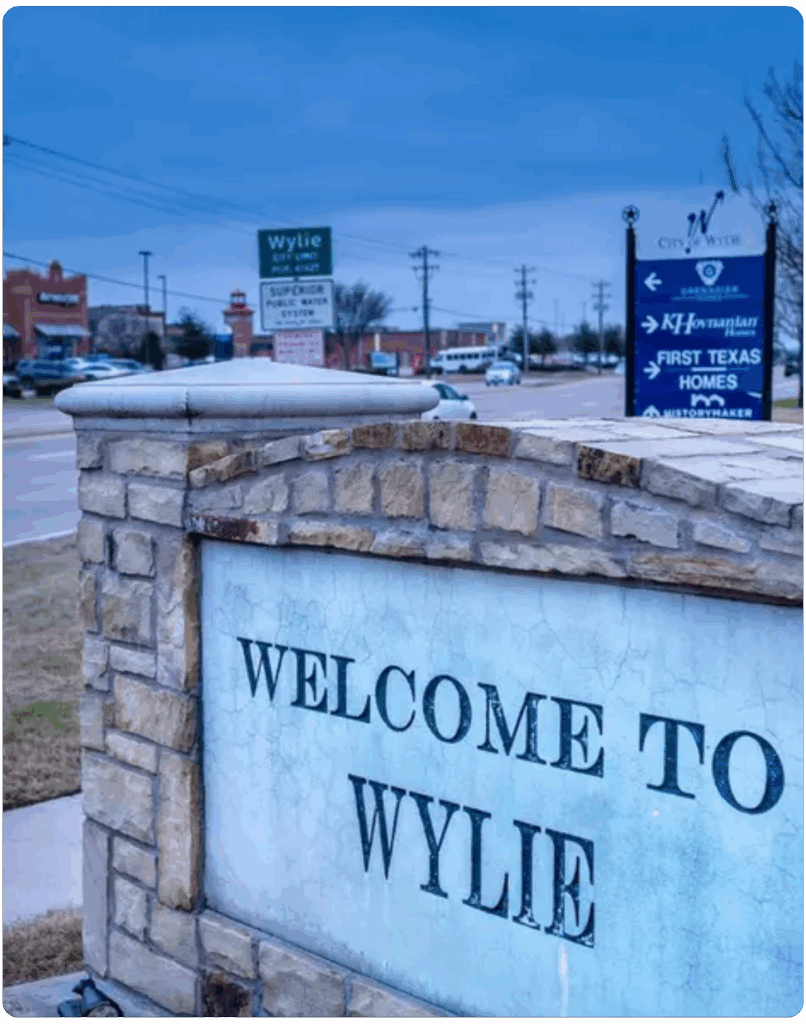
Buying a home in Wylie, Texas, could be complicated, but understanding closing costs should be a top priority. An advanced closing costs calculator attempts to demystify this process by outlining the costs associated with closing so that you may plan accordingly. Having a closing costs estimate allows you to make precise plans. It doesn’t matter if you’re buying a home for the first time or have bought multiple homes in the past; we encourage you to read our closing costs guide to familiarize yourself with the closing costs associated with purchasing a home in Wylie.
Key Highlights
- Wylie, Texas, closing costs vary due to mortgage rates, lender fees, and regional taxes.
- A closing costs calculator provides a detailed overview of expenses, aiding in financial planning.
- Title insurance protects investments from legal claims against property titles, which are vital for financial security.
- Analyzing typical closing fees helps homebuyers budget and potentially reduce unnecessary costs.
- Strategies to minimize closing expenses include shopping for mortgage rates and negotiating lender fees.
Understanding Closing Costs in Wylie, Texas
Every home buyer sets their budget and includes the expected purchase amount of the house and the associated mortgage. However, when calculating the final amount, many buyers overlook or ignore the secondary closing costs associated with the purchase. Wylie, TX, is no exception. Closing costs include, but are not limited to, title searches and appraisal fees. No one enjoys paying closing costs, but all home buyers should account for their necessary expenses. Due to the closing costs, many buyers fail to predict their budget or estimated buying power accurately.
Closing costs in Wylie depend on mortgage rates, the lender’s fee profile, and local property tax assessments, so there are significant discrepancies in estimates. The differences do not even have to be driven by substantial gaps. For instance, one lender may add value by including optional services, while other lenders will have administrative costs, affecting the total closing costs. Inadequate home buyer education on these gaps often leads to unplanned budget variance.
When buyers dissect and analyze each part of closing costs, they see where each dollar is going. This understanding also allows buyers to anticipate and mitigate unanticipated expenses and open options to negotiate and possibly lower some charges. Wylie buyers will bridge the closing gap by more fluently underscoring a transaction consistent with their needs and objectives. The closing process will be smoother and more transparent.
Sell My House Fast Houston offers expert guidance to help Wylie homebuyers navigate closing costs with clarity and confidence. We break down every fee—from title services to lender charges—so you understand precisely where your money goes. Our transparent approach and local expertise help you plan smarter, avoid surprises, and secure a smoother, more cost-efficient closing experience.
Key Components of Closing Costs
Many homeowners find themselves puzzled by closing costs until the end of their home-buying process. Closing costs encompass many items that facilitate the final legal transition of property title. Most closing costs are attributable to the lender and other closing service entities, such as title and escrow companies. For example, lenders often charge an origination fee, which pays for processing the loan application. This fee, a percentage of the loan, constitutes a considerable closing cost.
Homeowners also pay the appraiser to determine the home’s market value and ensure it is in sync with the amount of mortgage to be issued. Inspection fees are also crucial to legal safeguards protecting buyers from acquiring homes with issues. In addition, title insurance protects the lender and the buyer from claims made against the property in the past, which is critical because it cuts off potential future lawsuits.
Property taxes should not be neglected. They are prorated according to the closing date so that homeowners are only charged for the time the home is owned. Escrow fees, which manage the transfer of funds during the closing process, also affect the closing costs. They protect the interests of buyers and sellers. Each piece tends to be small, but the total is significant, demonstrating the need to account for the costs.
Why Closing Costs Vary
This begs the question of why the closing costs are not the same for every home purchase. Numerous determinants affect the final amount a home buyer pays. The final costs are likely affected by the burden and costs of the loan itself, which are significant because of the mortgage interest rates. Variability exists since every lender has its own rates determined by the borrower’s credit score, the loan type, and the prevailing financial market conditions.
Local property taxes, such as those in Wylie, are also a significant reason for these differences. Counties and municipalities charge different rates for the same property, influencing the closing figures. The local government charges also differ for recording the property transfer, another factor affecting the aforementioned closing figures.
Another factor involved is the nature and specific loan terms in question. For example, with government-backed loans such as VA or FHA loans, your net closing costs may be lower than conventional ones, since conventional loans are associated with different costs. In addition, there are differences based on the owner’s negotiation skills, since closing flexibility may be offered on dates that coincide with financial and seasonal trends that influence the lender’s specific costs. Home buyers have been known to do this to obtain certain concessions.
These are why Wylie homeowners need to have closing costs evaluated in detail. Home buyers look closely not only at the interest and principal on the loan but also at what other components make up the closing costs and how to adjust the costs to lower the net closing costs. Knowing the differences in closing costs also gives the buyer some understanding of the total financial burden the home and mortgage will carry.
Estimating Your Expenses with a Closing Costs Calculator

For buyers in Wylie, Texas, the intricacies of closing costs demand mastery, and closing costs calculators offer spectacular clarity on these complexities. Predicting the total closing costs, the calculators break the closing costs down to lender contributions, title insurance, and appraisals, giving essential insights. Understanding these costs means home buyers can anticipate and strategically plan in the event of surprises and streamline closing to avoid unnecessary surprises that could complicate the purchasing process.
A properly selected closing cost calculator does not simply generate closing estimates. The finest offers the most flexibility to its users, allowing them to modify and input differentiated values for loan types, down payments, and property values, which gives the users control to simulate various scenarios. This scenario-based approach maps and adjusts the complex Wylie closing cost estimates across offers, allowing negotiated offers to be a strategic closing cost management tool.
The upcoming segments will illustrate the best ways to utilize these calculators and the elements to consider to determine the most appropriate one. Appreciating the subtleties in each aspect of these calculators—differentiating regional tax implications or optional insurance coverage—will aid your financial planning. Mastering this will allow you to anticipate most of your expenses and to close more predictably and seamlessly.
Contact us today for personalized guidance and exclusive offers on closing costs in Wylie, Texas. Our team can help you explore options, compare estimates, and secure the best deal tailored to your homebuying needs.
Using a Costs Calculator Effectively
An efficient cost calculator is essential for your home-buying journey. Using it effectively converts what would otherwise be an overwhelming list of fees into a reasonable outline of your payments. It is designed to help you understand the total amount needed to close on a home and defines each part of the amount, like title insurance, loan origination fees, and tax prepayment. Based on the input, the calculator captures and tracks expenses while considering different rates from lenders and changes in the mortgage market that influence the total payment for your mortgage. This is intended to help you manage your estimated closing costs and record the expenses you will be liable to pay.
You can use a calculator to evaluate different lenders’ charges to identify which bank has a favorable margin, which helps you avoid wasting money. You must collect granular details like your desired property’s estimated worth, how much mortgage you wish to take, and the details of any existing loans. By appropriately entering the data, the calculator can estimate worthwhile expenses and explain how prepaid expenses fit within your financial ability to afford the home.
Also, part of the effective use of these calculators is the recognition that calculators average out some expenses like title insurance and property taxes. Adjusting these defaults to real numbers is a necessary step to improving the accuracy of your estimation. This step reduces the likelihood that your expectations will be disproportionate to your real-world financial capabilities when discussing with your loan officer. As a result, confident negotiators know precisely the amount and number of every cost that is and is likely to be incurred.
Choosing the Right Calculator for Your Needs

Selecting an appropriate calculator involves more than just an online search; it implies a more nuanced understanding of one’s financial needs and the particulars of one’s property transaction. Different closing cost calculators have diverse attributes due to stakeholders’ different priorities. Some closing costs calculators focus more on estimating title insurance, while others emphasize evaluating the impact of loan interest rates. When calculators are customized, it is more meaningful to understand closing costs for homeowners in Wylie, Texas, due to their particular property tax rates and fees charged by lenders in the region.
A good closing costs calculator has to be able to extract information on the industry’s current rates from reputable sources. The current rates should be matched with the value of property closing costs when estimating the closing costs. The best calculators accommodate and simulate market and industry changes, such as comprehensive lender fee breakdowns. Most borrowers want to feel that they can replicate their scenarios of the current loan with variable payments and costs; their estimates to closing cost calculators should be adjusted for those real-world scenarios.
Considering one’s time as a critical resource, the ease of calculator use should also be evaluated. If a calculator is challenging to use, one may as well perform the calculations manually, as the excessive time needed to work with the tool may be overly frustrating. Select a calculator that easily navigates and spells out cash flow components, such as prepaid expenses, and has an apparent breakdown explaining how each input correlates with the overall total. Ideal calculators allow you to manipulate many variables and assess how each impacts the cash flow.
Finally, a good cost estimator calculator must present the user with expected, obvious, and hidden costs, such as the cost of closing and insurance premiums. The estimator will enable accuracy and clarity in closing planning upon evaluating the factors presented. This will, in turn, allow you to assess the costs with confidence and strengthen your negotiation position.
The Importance of Title Insurance in Closing
Title insurance plays a pivotal role in home-buying, safeguarding homeowners and lenders. It provides financial protection against potential issues arising from defects in the property’s title, such as undisclosed liens, ownership disputes, or clerical errors in public records. Buyers could face unexpected financial losses or risk losing property ownership without this coverage.
In the final stages, title insurance promotes secure and efficient ownership transfers. It assures everyone, especially the buyer and the lender, that the title to the property is legally defensible. This insurance also mitigates and addresses potential title concerns that arise later, thus alleviating the anxiety accompanying one of the most significant financial commitments in an individual’s life.
Dealing with closing documents and explaining the title insurance ancillary product aids in the gap of understanding that moving parties encounter. Title insurance is effortless legally, but its worth is often lost in the cost-benefit analysis of closing costs. The strategic financial investments of title insurance and its ancillary products defend the homeowner against potential legal conflicts, thus preserving the economic and legal integrity of the equity in the property. The insurance provides peace of mind and protects one of the most significant financial investments in a person’s lifetime.
How Title Insurance Protects Your Investment

Title insurance is a vital safeguard for homeowners and lenders, protecting against financial losses caused by defects in a property’s title that may appear after purchase. These issues can include hidden liens, fraudulent claims, undisclosed heirs, or clerical errors—all of which could threaten homeownership. Whether you’re buying or planning to sell your house for cash in Wylie and other cities in Texas, securing proper title protection ensures the transaction proceeds smoothly and without unexpected legal complications.
Title insurance secures the lender’s interest and mitigates potential losses due to title defects. Besides lenders, title insurance also provides homeowners with foresight and aids in defending against real estate problems. A title search may find some problems, but it will not see all issues. Homeowners’ title insurance resolves the remaining issues and frequently pays the legal fees to fight disputes.
Title insurance remains in force for the insured’s lifetime, and as a one-time premium, it is financially advantageous. Homebuyers in Wylie, Texas, close with the peace of mind of title insurance to defend possibly complex title issues so that homeowners are comfortable and confident in the ownership of their rights. Understanding title insurance and its benefits is critical to closing a financially sound transaction.
| Aspect | Purpose | Benefits | Impact on Buyer | Impact on Seller |
|---|---|---|---|---|
| Title Search | Identify Ownership Issues | Reduces Legal Risks | Ensures Clear Ownership | Facilitates Smooth Transaction |
| Policy Coverage | Protection Against Claims | Offers Financial Security | Covers Potential Title Defects | Minimizes Sale Disputes |
| Cost | One-Time Fee | Lifetime Coverage | Avoids Future Expenses | Enhances Buyer Confidence |
| Claims Handling | Legal Defense Support | Reduces Stress | Assured Legal Protection | Mediates Buyer Concerns |
This table highlights the multifaceted role of title insurance in safeguarding home investments during the closing process.
Breaking Down the Closing Cost Details
Understanding the details of closing costs is of utmost importance to home buyers in Wylie, Texas. Closing costs include lender fees, title insurance, appraisals, escrow fees, and the prorated property taxes. Since every closing cost is essential to the transfer of ownership, all closing costs, if not calculated precisely, can quickly escalate to an unmanageable amount. Familiarity with these costs at the beginning of the home-buying process helps home buyers close effectively and calculate the most accurate possible budget. This promotes effective planning and indicates to buyers the actual affordability of the property in question.
Finding ways to cut unnecessary costs means less will need to be paid out. Buyers have flexibility with some lender or title fees. Buyers can compare fees on different mortgages or mortgages from other lenders. Buyers can also use programs that offer to pay some of the closing costs. Sellers will sometimes negotiate to pay some of the closing costs. Borrowers with this knowledge will minimize expenses without losing the quality of the service. Knowing this information, Wylie homebuyers will be less stressed during the closing process, which can be very stressful. Being less stressed will make this part of the home-buying process more manageable.
Typical Closing Fees Explained
Understanding the typical closing costs is essential when purchasing a property to avoid surprises at the closing table. Homebuyers and investor home buyers in Dallas, Wylie, and surrounding cities in Texas frequently encounter several fees, each serving a specific function in the transaction. One of the most significant components is the mortgage lender’s origination fee. Based on a percentage of the loan amount, this fee covers loan processing and origination paperwork. Depending on lender policies and the loan type, these fees can vary significantly, influencing the total closing costs.
Moreover, borrowers incur appraisal and inspection fees. These are necessary costs for establishing the property’s market value and assessing the condition for which the mortgage is extended. The appraisal ensures the value of the home being mortgaged is worth the mortgage, and the inspection clarifies whether any concealed problems could compromise the value and safety of the house.
Another vital fee, title insurance, defends homeowners and lenders against future claims against the property’s title. This peace of mind is essential for upholding post-purchase financial stability. In addition, property taxes are a significant component of closing costs. They are prorated to the closing date, so new homeowners pay only for the period that they own the property.
You should also consider escrow fees, which allow for the secure transfer of money between the parties, and homeowners’ insurance, which is frequently paid during closing for protection against possible damages and loss, and provides coverage in the unfortunate event of having to close the account. Considering these possible expenses should simplify the closing costs calculator estimator and the entire process.
Describing the functions of the closing costs empowers buyers. This self-empowerment improves buyers’ ability to plan and foresee expenses, allowing for smarter negotiations, possibly lower closing costs, and better interest rates. Seeing and understanding the expenses makes the buyers’ financial position and the costs surrounding the house purchase clearer.
Strategies to Minimize Closing Expenses
Minimizing closing costs is essential for homebuyers who want to boost savings without sacrificing key protections. The first step is understanding each fee’s purpose and exploring ways to reduce it. Start by shopping around for mortgage rates—different lenders offer varying interest rates and fees, which can significantly impact total costs. Gather multiple loan offers and use a closing costs calculator to compare them efficiently.
Negotiating with lenders is another clever tactic. Fees like origination charges can often be reduced, especially for borrowers with strong credit or larger down payments. Exploring lender credits can also help—these cover part of your closing costs in exchange for a slightly higher interest rate, lowering upfront expenses for buyers short on cash.
Homebuyers can save further by comparing quotes for appraisals, inspections, and insurance instead of sticking with lender-recommended providers. Reviewing homeowner’s insurance to eliminate unnecessary coverage can also trim costs.
Careful budgeting and review of your closing cost estimate are vital. Question unclear or duplicate charges to avoid overpaying. Finally, timing your purchase strategically—such as when lenders are trying to meet quarterly or yearly targets—may lead to more flexible terms and reduced costs.
By applying these strategies, buyers can effectively manage upfront expenses and achieve lasting savings over the life of their mortgage.
Here are additional practical tips to further reduce your closing expenses:
- Request a detailed breakdown of fees to identify negotiable items.
- Opt for a no-closing-cost option to pay costs over the loan term.
- Consider a shorter loan term if feasible, reducing overall interest.
- Check if any local grants or programs aid in closing cost reduction.
- Consider bundling homeowner services for potential discounts from providers.
- Understand tax implications that might lower annual financial burdens.
- Verify with the lender if specific fees can be waived or reduced.
- Explore refinance options that might lead to lower future closing costs.
These tactics can streamline purchasing, ensuring short-term savings and long-term financial health.
Utilizing a closing costs calculator for Wylie, Texas, empowers homebuyers to make informed decisions by breaking down complex expenses into understandable components. This valuable tool provides a clear view of potential financial commitments, allowing for better budgeting and negotiation. Staying updated on closing cost variations is crucial as the housing market evolves. By proactively understanding these costs, you position yourself for a seamless and financially sound home purchasing experience. Rely on these insights to navigate the home-buying journey confidently, aligning with your financial goals and securing your ideal property in Wylie.
FAQs:
What is the purpose of a closing costs calculator in Wylie, Texas?
A closing costs calculator provides a detailed overview of the expenses associated with purchasing a home, helping homebuyers plan financially. It breaks down components such as title insurance, lender fees, and property taxes.
How can homebuyers minimize closing costs?
Strategies to minimize closing costs include shopping for competitive mortgage rates, negotiating lender fees, and considering lender credits. Homebuyers can also seek competitive quotes for services like appraisals and inspections to reduce expenses.
Why do closing costs vary in Wylie, Texas?
Closing costs vary due to differing mortgage rates, lender fees, property taxes, and local government charges. The choice of loan and negotiation strategies can also influence the total amount paid.
What are the benefits of title insurance during the home-buying process?
Title insurance protects homeowners and lenders against legal claims on the property title, providing security against hidden liens, fraudulent claims, or clerical errors, and covering potential legal costs related to title disputes.
What are typical components included in closing costs?
Typical components of closing costs include mortgage origination fees, appraisal and inspection fees, title insurance, property taxes, escrow charges, and prepaid homeowners’ insurance. Each fee plays a role in ensuring a successful property transaction.
Do you need to sell your house? Sell it quickly, avoid costly repairs, or prefer a hassle-free sale. Sell My House Fast Houston is here to help. We offer fair cash offers, handle all the details, and make the process seamless. Ready to sell or have questions? Call us at (281) 502-4750 for a no-obligation offer. Get started today!
Helpful Wylie Blog Articles
- Wylie, TX Property Tax Rate
- Explore the Neighborhood Map and Subdivisions of Wylie, TX
- Fun Facts About Wylie, TX
- Best Wylie, TX Property Managers
- Best Things to Do in Wylie, TX with Kids
- Discover Living in Wylie, TX
- The Best and Worst Neighborhoods in Wylie, TX
- Wylie, Texas Cost of Living
- Wylie, Texas Closing Costs Calculator
- Wylie, Texas Capital Gains Tax Calculator

